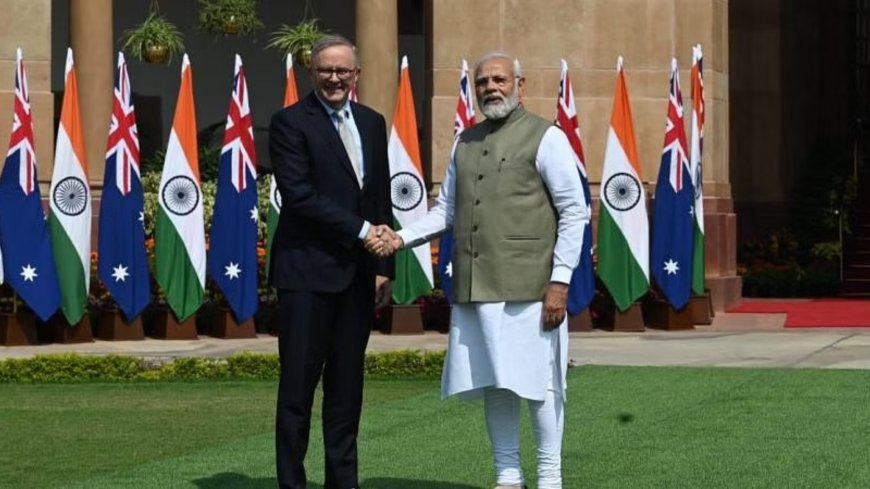India-Australia Tech Talent Collaboration: Australia's Skills Shortage Solution
In today's digital era, technology is central to every facet of life, presenting Australia with a daunting challenge—a significant gap in critical and cyber technology skills. This shortage poses a considerable threat to the economy, impacting national security and the stability of the Indo-Pacific region.

A 2023 report by Jobs and Skills Australia, "Towards a National Jobs and Skills Roadmap," highlights that nearly 70% of ICT professional occupations in Australia are experiencing a shortage, indicating a broader national crisis in more than one-third of assessed occupations, with technology skills facing particularly severe shortages.
The demand in Australia's professional, scientific, and technical services sectors is expected to grow substantially, needing an additional 116,900 people by 2028 and 233,600 by 2033. However, the current output of IT graduates in Australia is alarmingly low, with only about 7,000 students graduating annually with IT degrees, despite the critical need for software knowledge in the digital and automated age.
The Australian Information Industry Association (AIIA) underscores that skill shortages are the primary barrier to business growth, with half of Australian organizations outsourcing IT roles internationally due to the domestic skills deficit. The most outsourced skills include AI and cybersecurity. This scenario suggests an underperformance in the Australian education system in generating IT-skilled graduates.
Tech skill shortages also jeopardize Australia's national security, with a pressing need for cyber security professionals in both government and industry sectors. The Australia India Institute's defense tech dialogue emphasized the mutual benefits of defense technology sharing and supply between the two countries, highlighting the strategic importance of collaboration.
With the digital economy and security relying heavily on artificial intelligence and cybersecurity, Australia's commitment to achieving 1.2 million tech jobs by 2030 reflects the urgency to address the skills gap. Meeting this target requires not just the expansion of the local talent pool but also tapping into international skills sources.
India, with nearly half of its population under 25 and a young tech talent pool, stands as a crucial ally in bridging Australia's skills gap. With an estimated 11.4 million software developers, India's burgeoning tech talent, fueled by educational initiatives and regulatory changes allowing international campus setups, offers a golden opportunity for Australia.
Effective mechanisms are essential for harnessing this potential. Initiatives like the Australia-India Cyber and Critical Technology Partnership (AICCTP), the Mobility Arrangement for Talented Early-professionals (MATES) scheme, and the Mutual Recognition of Qualifications mechanism are pivotal steps towards fostering skilled professional mobility and collaboration.
The Australia-India Economic Cooperation and Trade Agreement (ECTA) further facilitates this collaboration by extending post-study work rights for Indian students in STEM and ICT sectors, benefiting both Indian graduates and Australian tech businesses.
Despite these promising frameworks, execution is key. The integration of international students into the Australian workforce faces hurdles, with many working below their skill level. Addressing this requires a unified strategy involving students, industries, educational institutions, and governments.
The review of Australia's migration system by Parkinson highlights the need for a more targeted approach to attracting top international talent, emphasizing the importance of clear pathways to permanent residence and support for international students to succeed in the Australian labor market.
Addressing Australia's growing tech skills gap necessitates a long-term, multifaceted strategy involving international collaboration, particularly with India's skilled tech workforce. Through employment and mobility agreements, both countries can strengthen their security alliance, contributing to a safer Indo-Pacific region. While existing agreements lay a solid foundation, innovative solutions are urgently needed to fill the critical tech sector vacancies in Australia, demanded by the digital age.
Tags:
- Australia Immigration
- Tech Skills Shortage
- India-Australia Partnership
- Cybersecurity
- Artificial Intelligence
- Skilled Workers
- Student Visas
- Work Permits
- Global Talent
- Economic Growth
- National Security
- Indo-Pacific Relations
- Skilled Migration
- Education Partnership
- International Students
- STEM Fields
- Digital Economy
- IT Professionals
- Cyber Technology
- Workforce Development
- Talent Mobility
- Bilateral Agreements
- Emerging Technologies
- Tech Jobs Growth
What's Your Reaction?
 Like
0
Like
0
 Dislike
0
Dislike
0
 Love
0
Love
0
 Funny
0
Funny
0
 Angry
0
Angry
0
 Sad
0
Sad
0
 Wow
0
Wow
0







































































































